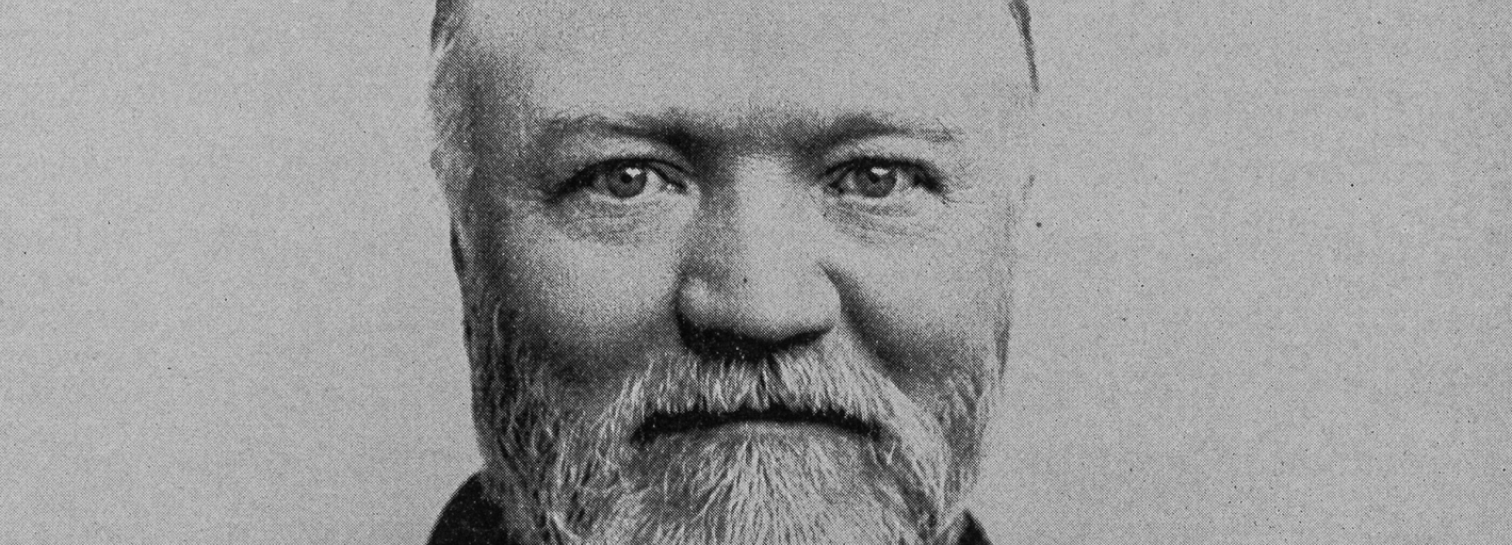

History & Investment
Carnegie UK was founded in 1913 with a $10 million endowment from Andrew Carnegie.
Andrew Carnegie
Andrew Carnegie was a Scottish-American businessman who became one of the richest Americans of all time chiefly through his involvement in the steel industry. Toward the end of his life, Carnegie gave away the vast majority of his fortune and encouraged others to do the same with their personal wealth.
Carnegie was born in Dunfermline in Fife where we are still based today and emigrated to the United States at the age of 12.
Carnegie UK was founded in 1913 with a $10 million endowment from Andrew Carnegie.
In creating the UK trust at the age of 78, Carnegie defined its purpose as:
“…the improvement of the well-being of the masses of the people of Great Britain and Ireland by such means as are embraced within the meaning of the word ‘charitable’ and which the Trustees may from time to time select as best fitted from age to age for securing these purposes, remembering that new needs are constantly arising….”

Carnegie UK moved away from taking grant applications and became an operating foundation: “seeking to influence public debate, public policy and practice through independent commissions of inquiry, pro-active research and strategic partnerships…”.
At the same time, and marking this shift, we launched the Carnegie Commission for Rural Community Development, an influential multi-year programme which prompted real advances in rural policy. Learning from this work and similar approaches helped to shape the public policy organisation we are today.
Carnegie UK shares its premises with two other organisations founded by Andrew Carnegie: the Carnegie Dunfermline Trust and The Carnegie Trust for the Universities of Scotland.

Over the following century Carnegie UK supported hundreds of projects including the building of libraries across the length of the British Isles; schemes supporting the arts and the natural environment; a wide range of inquiries; innovative social welfare programmes; and action to promote health and nutrition in the United Kingdom.
More than 100 years on from the original endowment, we recognise that Carnegie built much of his wealth on practices that are not in line with our understanding of wellbeing today. The process of steelmaking damaged the environment and his organisations’ employment approaches did not meet our own definition of Good Work, which recognises the importance of employee representation and voice alongside other measures of employee wellbeing.
As Carnegie UK looks to the future, we believe we can continue to make a positive difference to the people of the UK and Ireland. But it is important for us to recognise the historic origins of our endowment and to reflect these in the decisions we make about how we use our money and our voice in the present.
Carnegie UK published a book about its 100 year history which can be supplied on request.

Investment
Carnegie UK is a charitable foundation established with an endowment from Andrew Carnegie over 100 years ago.
We cover our operating costs with income from investments. In 2022, we moved our investment portfolio to a new asset manager and adopted a Statement of Investment Policy which reflects our ethics and values. The Statement of Investment policy recognises the damage that exploitative and extractive practices have had on people and planet and commits Carnegie UK to addressing these in our investment practice.
Carnegie UK is a signatory to the Funder Commitment on Climate Change, which is hosted by the Association of Charitable Foundations (ACF). This challenges us to develop our environmental practice, including in our investment strategy, and to report on it publicly on an annual basis. We are also currently researching how to address historic and current racial injustices through our investment approach.
Help us make the case for wellbeing policy
Keep in touch with Carnegie UK’s research and activities. Learn more about ways to get involved with our work.
"*" indicates required fields